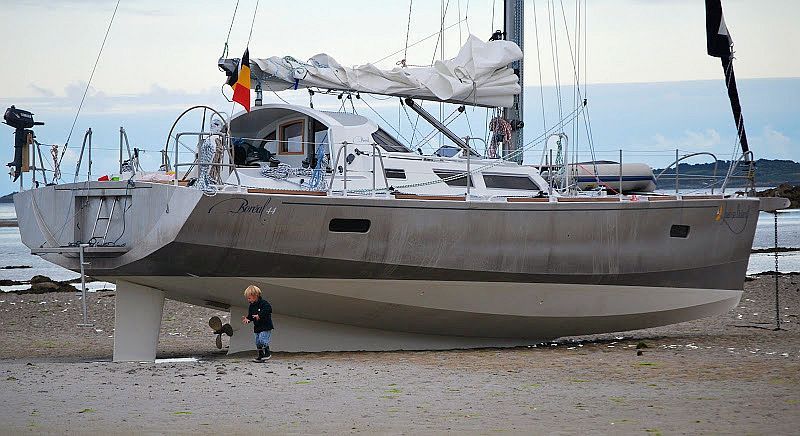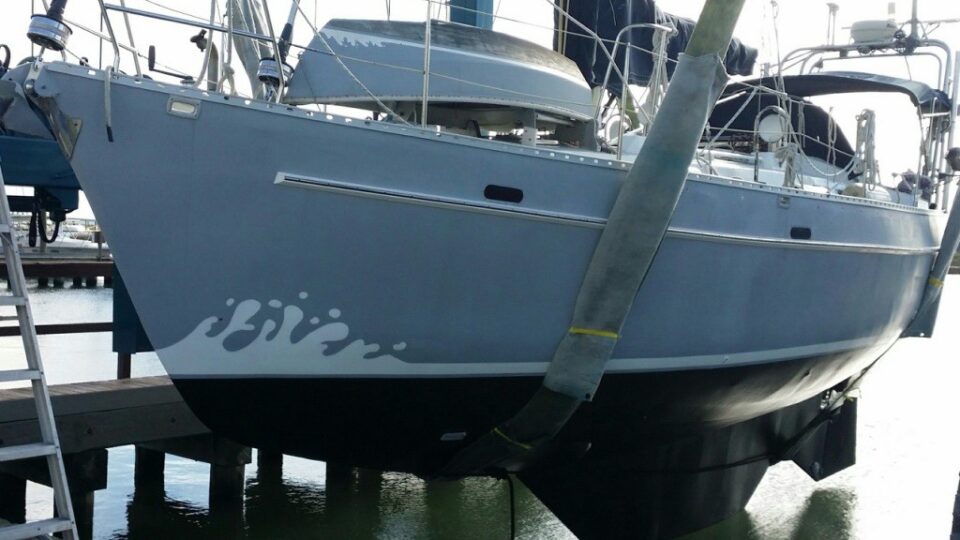Aluminum vs Steel Boat: Which Is Better?
As far as metals for constructing boats and sailboats go, steel and aluminum (or aluminium) are very popular. Both metal workers and boaters regularly argue about which of the two metals is better for the construction of boats. There are many advantages to both steel and aluminum boats. In this article, we enumerate the advantages and disadvantages of types. Also, we directly compare them to each other, elaborating on different ways in which one material is superior to the other.
Advantages of Aluminum Boats
- Aluminum boats are rather fast. This is brought about by their weight. Also, they have a high fuel efficiency, thereby helping the user save money. Aluminum boats are known to have a relatively high resale value.
- The hulls of aluminum boats do not corrode easily. Apart from electrolysis, the hull of an aluminum boat is not very prone to corrosion.
Disadvantages of Aluminum Boats
- The weight of aluminum boats, although meritious, can also be a demerit in a few other areas. Aluminum boats sacrifice comfort at the expense of lightness and speed. This light nature results in a “bumpy,” uncomfortable ride. Also, there tends to be a lot of noise emanating from splashes and water hitting aluminum vessels. Simply put, aluminum boats are not suited for comfort.
- Another problem with aluminum paints is electrolysis. It is a process that is caused by the passing of direct electric current through an electrolyte, creating chemical creations at the electrodes and also triggering the decomposition of materials. In this case, the electrolyte is the water. Simple happenings such as metallic falling and making contact with the bilge of an aluminum boat can result in this problem over time.
- Furthermore, concerning corrosion, aluminum boats can react negatively to anti-fouling paint. This is because copper is contained in anti-fouling paint, and it corrodes aluminum.
Advantages of Steel Boats
Are steel hull boats any good? First of all, steel boats have great abrasion resistance. They do the job of maintaining their original look very well, especially on the hull (which is the main part of the ship, after all). This is due to the sheer ruggedness of steel and its ability to withstand external pressure.
- Steel boats are likely to survive heavy impact without taking too much damage. The metal is used in many other areas of construction because of its strength.
- Steel boats are comfortable. Their relatively heavy weight makes them more stable at sea; therefore, cruises and rides with steel boats are generally peaceful. There is less noise because the water is hitting the boat less.
- Because steel is a very common metal, it is relatively easy to find steelworkers. This means that finding a place to repair your steel boat would be easy. Also, still being common implies that it is easy to find a workforce if you are looking into going into the construction of steel boats.
Disadvantages of Steel Boats
- Steel boats are rather slow. Like fiberglass boat users, steel boat users also sacrifice speed for some level of peace and comfort when riding.
- Steel is generally heavy; hence, welding it can be rather difficult.

Comparison Between Steel Boats and Aluminum Boats
By looking at a few points, we have explicitly compared steel boats to aluminum boats.
Weight and Density
Aluminum weighs less than steel. Aluminum’s density is 168 pounds per cubic foot, while that of steel is 490 pounds per cubic foot. The average aluminum boat weighs about 30% less than a steel hull of the same strength.
Price
Aluminum is more expensive than steel. Of course, the forces of demand and supply regularly affect the price of both materials. Regardless of this, aluminum is still generally more expensive.
Availability of Material
As mentioned among the advantages of steel, the metal is used in various areas of construction. Therefore, it is very much easier to find. In areas outside hot spots such as the North American and European continent, finding enough aluminum for a marine construction project as simple as a boat could be difficult.
Welding
Since aluminum is not as strong and heavy as steel, welding it is relatively easier. Regardless of how strong aluminum is, even plate aluminum, it is not as strong as steel is. Usually, welding aluminum takes half the effort it takes to weld steel. This also helps to save time.
More so, it is important to note that welding equipment for aluminum is quite expensive in comparison to steel. Aluminum welding requires gas-shielded equipment, while steel welding requires stick/electrode equipment. The former is less common and more expensive. Also, if aluminum welding is not carried indoors, the wind is likely to interfere with the gas shield, and this can result in faulty welds. Having an enclosed space specifically for the welding of aluminum may not agree very well with the pockets of many welders and small-time marine construction professionals.
Work
Welding aside, it is generally easier to work on aluminum. The alloy is soft; hence, it is easy to bend. Equipment is as simple as the ones used for woodwork can be used to manipulate aluminum to the required shape and size. On the contrary, steel needs specialized, heavy equipment to work.
Scrap and Resale Value
Scrap Monster says that one pound of steel scrap goes for about 270 USD while a pound of aluminum scrap costs 1100 USD. The difference is undeniably large. So, if your boat has outlived its lifespan and you want to sell it as scrap, you would get a lot more money if it is an aluminum boat.
Furthermore, the resale value of aluminum is also higher than that of steel. If you resell your aluminum boat, you are likely to get back a large amount of the original cost back. This is partly because aluminum is a rarer and more expensive material.
Abrasion/Corrosion Resistance
Steel boats have a higher abrasion resistance than their aluminum counterparts. For boats that are likely to be at sea for a long time, it is expedient to use steel in their construction. Harsh, hard impact that can cause abrasion cannot be withstood by any other material better than steel. Of course, aluminum can take a hit; it is strong to an extent. Steel, however, is very much stronger.
You may want to note that although steel is more resistant to forces of abrasion, aluminum is more resistant to rust.
Comfort
One of the demerits of aluminum boats, as mentioned above is that it is not well suited for comfort. Aluminum’s lightness is advantageous in many areas but not here. If you want a yacht that is suited for optimal comfort and relaxation, and you are stuck between steel and aluminum, it is better to go for steel in most cases.
Superstructures
For most steel boats that require superstructures, these superstructures are usually made of other materials such as aluminum and wood. Due to its sheer size, strength, and weight, if steel is used for all the superstructures, it may be difficult to keep the center of gravity at a low, safe level.
Flammability
It is quite possible for aluminum to melt and burn. Its melting point is at 1,080 F. Steel, on the other hand, has a melting point of about 2,600 F. Now, if the heat is intense enough, aluminum can actually burn. Although the alloy is less likely to burn than other marine construction materials (fiberglass and wood), it is not as fire-resistant as steel is.
Bacteria
Steel is less likely to corrode than aluminum (due to its abrasion resistance). Nevertheless, there are bacteria that could speed up the corrosion process in steel, eating through a large part of it in a short time. Measures can be taken against this, but it is one edge that aluminum has over steel.
Electrolysis
Electrolysis is more likely to occur in aluminum than it is in steel boats. This is still due to steel’s sheer abrasion resistance.
>>Also Read: Pros and Cons of Steel Sailboats
Aluminum vs Steel Boat – Conclusion
Choosing a better boat always comes down to functionality. Hulls made from both steel and aluminum have their pros and cons. Picking a material for your boat, depends heavily on what you plan to use it for. Long cruises and voyages are better carried out with steel boats rather than aluminum boats. In the same way aluminum boats are better for you if speed is your goal.
Most marine construction workers, however, prefer to work on aluminum boats because aluminum is an easier material to work with and on. Also, most boaters prefer aluminum boats due to the fact that when compared to steel boats, they have more advantages. Therefore, aluminum boats are generally preferred to steel boats. Nonetheless, functionality is a very important factor.
